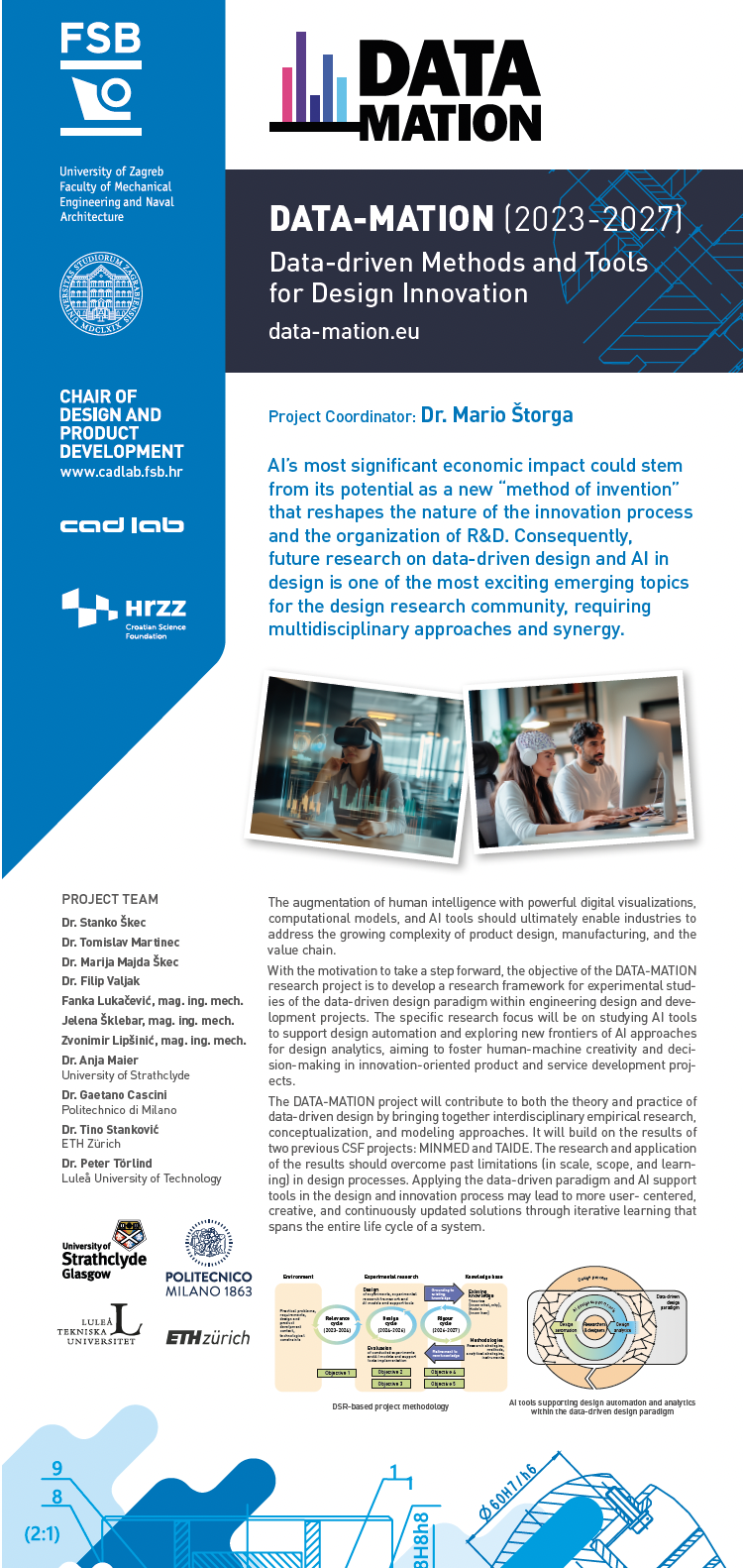AI’s most significant economic impact could come from its potential as a new ‘method of invention’ that ultimately reshapes ‘the nature of the innovation process and the organization of R&D’. Consequently, future research on data-driven design and AI in design is one of the most exciting emerging topics for the design research community that requires multidisciplinary approaches and synergy. The augmentation of human intelligence with powerful digital visualizations, computational models, and AI tools should, in the end, enable the industry to address the grow ing complexity of product design, manufacturing, and the value chain. With the motivation to make the step forward, the objective of the proposed research project is to develop a research framework for experimental studies of the data-driven design paradigm w ithin engineering design and development projects. The specific research focus will be aimed at studying AI tools to support design automation and new frontiers of AI approaches for design analytics, with the goal of fostering human-machine creativity and decision-making within innovation-oriented product and service development projects. The proposed project will contribute to both the theory and practice of data-driven design by bringing together interdisciplinary empirical research, conceptualization, and modeling approaches. It will be built on the results of two previous CSF projects: MINMED and TAIDE. The described research and application of the results should enable overcoming past limitations (in scale, scope, and learning) of design processes. Applying the data-driven paradigm and AI support tools in the design and innovation process may lead to more user-centered, more creative, and continuously updated solutions through learning iterations that span through the entire life cycle of a system. Finally, there are very significant implications on education due to the impact on the curricula of future engineers.
More info: data-mation.eu

IP-2022-10-7775
2023 - underway
Croatian Science Foundation